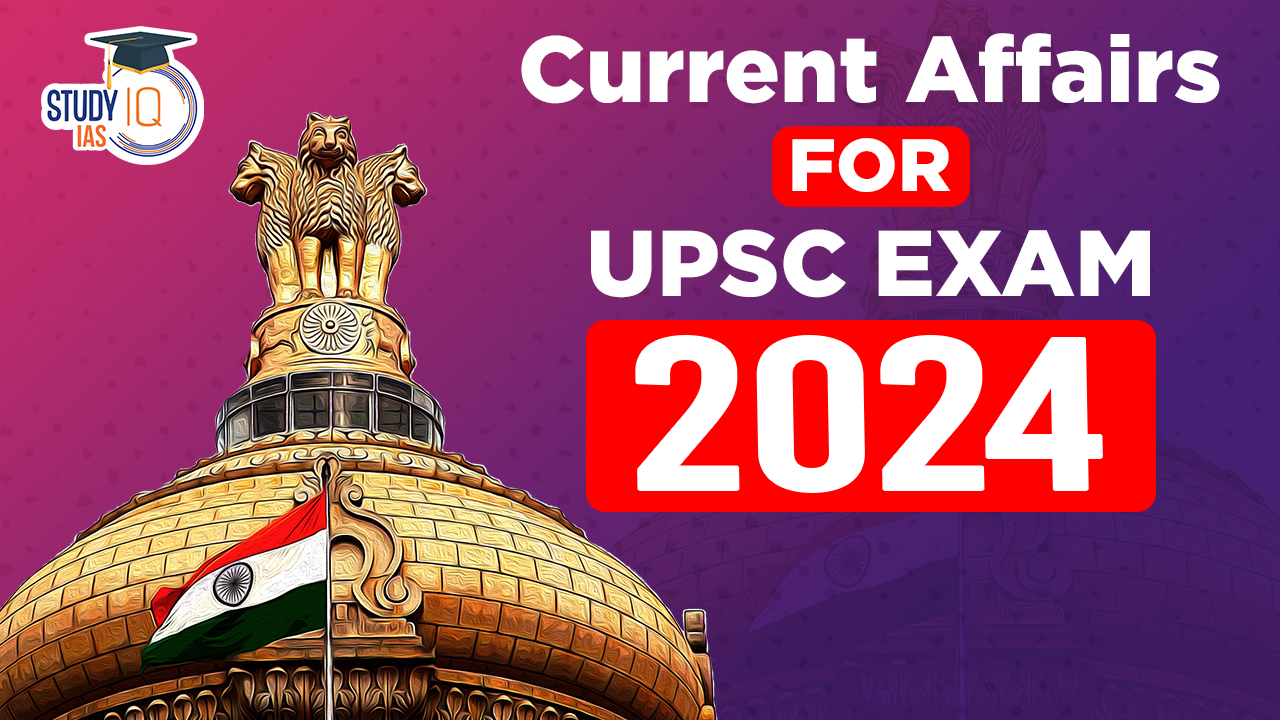Table of Contents
China’s Bet on Open Source Chips
Context: In response to broader U.S. restrictions on semiconductor technology, China is incorporating the open-source RISC-V architecture for microchips into its strategy to reduce reliance on Western tech.
| More In News |
|
About RISC-V
- RISC-V, pronounced “risk five,” is an open-source instruction set architecture (ISA).
- It represents the fifth generation in the evolution of Reduced Instruction Set Computer (RISC)
- How RISC-V Functions?:
- It facilitates innovation in processor design, offering greater design flexibility.
- The architecture is based on a compact set of core instructions essential for running the design’s software.
- It enables designers to craft custom processors tailored to specific applications.
- It is seen as an open-source alternative to ARM and x86 architecture.
- Benefits of RISC-V: The open-standard framework fosters industry-wide collaboration and innovation.
- Its transparency ensures the architecture is open for public review, enhancing security by minimising the risk of undisclosed vulnerabilities.
- Applications of RISC-V: RISC-V technology is versatile, finding applications in various fields such as wearables, industrial systems, IoT devices, home appliances, smartphones, automotive technology, high-performance computing, and data centres.
| Digital India RISC-V Microprocessor (DIR-V) Program |
|
Myanmar’s Civil War and India’s Interests
Myanmar’s Political Turmoil
- In February 2021, Myanmar’s military ousted the Aung San Suu Kyi government, expecting brief resistance.
- However, three years on, opposition remains strong, with Ethnic Armed Organisations (EAOs) and People’s Defence Forces controlling significant areas.
- Recently, the Arakan Army took control of Paletwa in Chin State, near Myanmar’s borders with Bangladesh and India.
Strategic Significance of Paletwa
- Paletwa’s capture has raised tensions between the Chin and Arakan ethnic communities due to its historical significance and economic value, especially being a key town along the Kaladan River, impacting local commerce and strategic military operations.
India’s Stake in the Kaladan Project
- The Kaladan Multimodal Transit Transport Project (KMTTP) in Myanmar is critical for India, aiming to provide an alternative route for northeast India to the sea, bypassing the vulnerable Siliguri corridor.
- Despite progress like the completion of Sittwe port and the Paletwa terminal, road construction faces delays due to security issues in Myanmar.
Security Challenges and External Influences
- The Arakan Army’s influence and its perceived opposition to the Kaladan project pose security challenges.
- Incidents like the kidnapping of Indian workers and the Army’s alleged connections with China, which supports the Three Brotherhood alliance, further complicate the project’s progress amidst China’s growing economic presence in Myanmar.
Approach for Project Completion
- To ensure the successful completion of the Kaladan project and similar initiatives, India needs to engage with a broad spectrum of local ethnic organisations and communities.
- This includes addressing the complex dynamics of ethnic relations, the military and EAO contestations, and external influences, particularly from China.
Conclusion
The intricate situation in Myanmar, marked by ethnic conflicts, political instability, and external influences, notably from China, underscores the need for a comprehensive and multidisciplinary approach by India. This approach should combine technical expertise with a nuanced understanding of local socio-political landscapes to navigate challenges and expedite projects like the Kaladan Multimodal Transit Transport Project.
| Facts |
|
Grammy Awards
Context: Five Indian musicians won a Grammy at the 66th Grammy Awards, 2024 held in Los Angeles.
More In News
- Ustad Zakir Hussain
- Awards Won: 3
- Best Global Music Album: “This Moment” with the fusion group Shakti.
- Best Global Music Performance: “Pashto.”
- Best Contemporary Instrumental Album: “As We Speak.”
- Awards Won: 3
- Rakesh Chaurasia
- Awards Won: 2
- Part of the ensemble with American musicians Bela Fleck and Edgar Meyer for “Pashto” and “As We Speak.”
- Shankar Mahadevan, Ganesh Rajagopalan, and Selvaganesh Vinayakram
- Awards Won: 1
- Best Global Music Album: “This Moment” with the fusion group Shakti.
- Awards Won: 2
About Grammy Awards
- Awarding Bodies: The awards are given by the National Academy of Recording Arts & Sciences (NARAS, also known as the Recording Academy) in the U.S. and the Latin Academy of Recording Arts & Sciences (LARAS, also known as the Latin Recording Academy).
- Annual Event: These awards are presented yearly in the United States to honor outstanding achievements in the music industry.
- Wide Coverage: Winners are chosen across more than 25 fields, encompassing genres like pop, rock, rap, R&B, country, reggae, classical, gospel, jazz, and more.
- Beyond Music: The awards also recognize production and postproduction efforts, including packaging and album notes.
- Award Trophy: Recipients are awarded a golden gramophone statuette.
AISHE 2021-22 Report
Context: All India Survey of Higher Education (AISHE), 2021-22 report highlights the progress in gender parity, a surge in doctoral studies, and a strong preference for public institutions and arts education.
Key Highlights Of The Report
- Overall Female Enrollment: Women’s enrollment in higher education has risen from 1.5 crore in 2014-15 to 2.07 crore in 2021-22, indicating a significant increase in female participation in higher education.
- Gender Parity Index (GPI): The GPI has shown improvement, suggesting that the gender gap in higher education is narrowing, with some states displaying a GPI in favour of women.
- PhD Enrollments: The total PhD enrollment stands at 2.12 lakh, of which 98,636 are women, showing an uptick in women pursuing doctoral studies.
- Arts vs. Sciences: Enrollment in Bachelor of Arts programs is higher than in science, engineering, and technology programs, with Arts having 34.2% enrollment followed by sciences (18.48%), commerce (13.3%), and engineering and technology (11.8%).
- Preference for Public Institutions: Students have shown a preference for government educational institutions, with 73.7% of all students attending government universities, compared to 58.6% attending private universities.
Monetary Policy Committee, Repo Rate
Context: The Reserve Bank of India’s Monetary Policy Committee is expected to keep the current repo rate (6.5%) unchanged for the sixth consecutive year.
About Monetary Policy Committee
- Established: The Reserve Bank of India Act, 1934 (RBI Act) has been amended by the Finance Act, 2016 to provide for a statutory and institutionalised framework for a MPC.
- Purpose: The MPC’s role is to set the benchmark policy rate (repo rate) to achieve a specified inflation target.
- The central government empowered to form a six-member MPC (under Section 45ZB of the amended RBI Act, 1934)
- Composition: The MPC consists of the
- RBI Governor as the chairperson,
- The RBI Deputy Governor for monetary policy,
- One RBI Board-nominated official, and
- Three government representatives.
- External members of the MPC serve a term of four years.
- Quorum For Meeting: A quorum for MPC meetings is four members, including the Governor or, in their absence, the Deputy Governor who is a member of the MPC.
- Decision Making: Decisions are made by majority vote, with the RBI Governor holding the tie-breaking vote if necessary.
- The MPC’s decisions are obligatory for the RBI to implement.
What Is Repo Rate?
- Repo Rate: The repo rate, or “Repurchase Rate,” is the interest rate at which a central bank, like the Reserve Bank of India (RBI), lends money to commercial banks.
- The commercial banks borrow money from the central bank by pledging government securities or bonds as collateral.
- In return, they receive funds from the central bank at the repo rate.
- This short-term borrowing allows banks to meet their liquidity requirements and maintain a stable financial position.
- It helps the central bank control inflation.
- By adjusting the repo rate, the central bank can encourage or discourage borrowing and spending by banks and consumers.
- A higher repo rate can reduce borrowing and spending, curbing inflation, while a lower rate can stimulate economic activity.
| Previous Year Question Paper |
Q. Which of the following statements is/are correct regarding the ‘Monetary Policy Committee (MPC)? (2017)
Options [A] 1 only [B] 1 and 2 only [C] 3 only [D] 2 and 3 only Answer: Option A |


 Serious Fraud Investigation Office (SFIO...
Serious Fraud Investigation Office (SFIO...
 Article 142 of Indian Constitution, Sign...
Article 142 of Indian Constitution, Sign...
 Pakistan-Occupied Kashmir (PoK): History...
Pakistan-Occupied Kashmir (PoK): History...





















